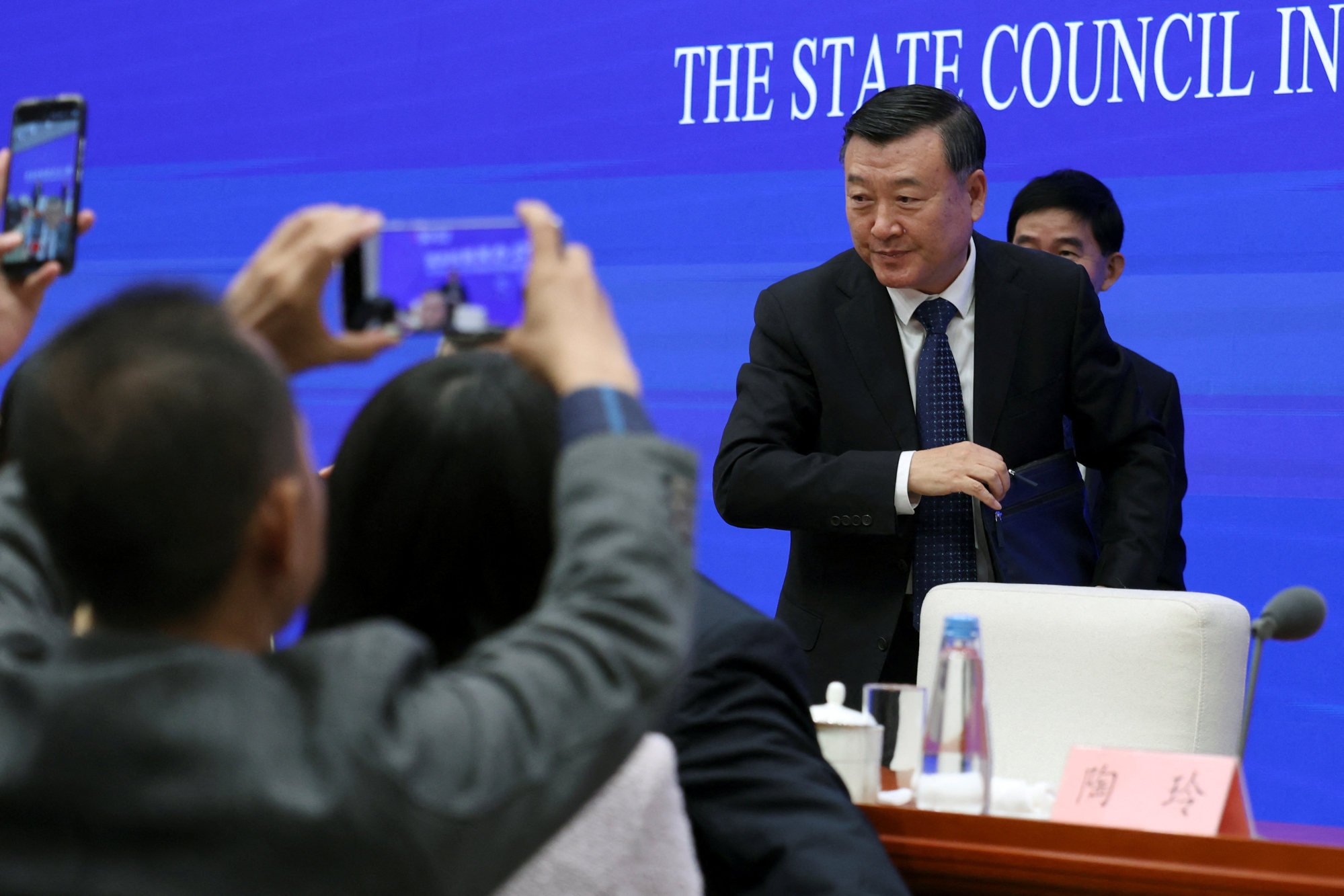China’s home prices fell by the most in nine years in September, extending a decline for the 16th consecutive month and underscoring the challenges to revive the sector despite a top government official saying that the market has started to “bottom out” following a slew of supportive measures.
New home prices dropped 6.1 per cent across 70 mainland cities from a year earlier, the biggest decline since May 2015. The decline expanded from a 5.7 per cent slump in August, according to data from the National Bureau of Statistics (NBS) on Friday.
New home prices in the four tier-1 cities – Beijing, Shanghai, Guangzhou and Shenzhen – fell 0.5 per cent month on month in September, following a 0.3 per cent decline in August, the data showed. Tier-2 cities such as Tianjin, Wuhan and Chengdu, and tier-3 cities such as Dali, Xuzhou and Huizhou saw a 0.7 per cent drop last month, compared with 0.6 per cent in August.
Do you have questions about the biggest topics and trends from around the world? Get the answers with SCMP Knowledge, our new platform of curated content with explainers, FAQs, analyses and infographics brought to you by our award-winning team.
Prices of second-hand homes fell 1.2 per cent on average in September in Beijing, Shanghai, Guangzhou and Shenzhen, widening by 0.3 percentage points from August, according to the data. Prices fell 0.9 per cent in tier-2 and tier-3 cities, contracting by 1 percentage point month on month.
“The housing market is experiencing a deep adjustment, as a ‘bottom’ is being formed gradually through three years of overcorrection,” said Yan Yuejin, vice-president of Shanghai-based E-House China Real Estate Research Institute.

Once a growth engine powering a quarter of China’s gross domestic product (GDP), the property sector has now become a drag on the economy since a nationwide campaign began in late 2020 to deleverage developers and rein in debt. China’s GDP grew 4.6 per cent for the third quarter from a year ago, worsening from the 4.7 per cent growth in the second quarter, according to the official data released on Friday.
A turnaround may be about to take place and this will be reflected in the October data, said Yan, adding that housing prices will stop falling further and start stabilising.
The official data came after China announced the most significant stimulus package since the pandemic late last month to stimulate consumption, investment and property sales. The People’s Bank of China instructed lenders to cut mortgage rates by half a percentage point and reduce the down payment for second homes to 15 per cent from 25 per cent. That was followed by tier-1 cities relaxing home-purchase rules to spur sales.
Sentiment picked up shortly after the supportive measures, with new-home transactions over the “golden week” National Day holiday jumping 27 per cent year on year across 25 Chinese cities tracked by the China Index Academy. Local media outlets reported prospective buyers flocking to showrooms to visit sample units.
Housing Minister Ni Hong said at a media briefing on Thursday that the property market has started to “bottom out” after three years of adjustment. He also announced an increase in credit support to 4 trillion yuan (US$563 billion) by year-end for an expanded “white list” of housing projects, and plans to renovate 1 million old homes in large cities.
However, some analysts do not think property prices are going to bottom out any time soon.
“Structural changes will continue to reshape the outlook for China’s real estate market,” Ricky Tsang, analyst at S&P Global Ratings, said in a report published on Friday.
“Property sales could stabilise towards the second half of 2025, but only if the conditions are right,” said Edward Chan, analyst at S&P.
The rating agency estimates overall property sales will decline to about 8.5 trillion-9 trillion yuan in 2024, dropping further to 8 trillion-8.5 trillion yuan in 2025.
Sales at the nation’s top 100 home builders in the first nine months of the year fell 38.8 per cent from a year earlier, according to data published this month by the China Index Academy.
More from South China Morning Post:
- China’s August home prices drop at the fastest pace in 9 years, as small cities bear brunt
- China will win ‘tough battle’ to preserve property sector: housing minister
- Top Chinese developers’ sales up slightly in September following Beijing support
- China property: Hangzhou and Chengdu ease purchase rules to spur housing transactions
For the latest news from the South China Morning Post download our mobile app. Copyright 2024.





